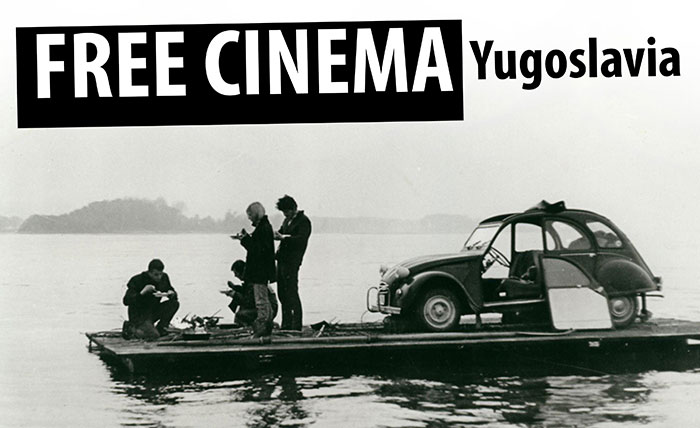3 Dec 2018
Events
FREE CINEMA “Yugoslavia”
24 November – 8 December, HIAP Studios
FREE CINEMA “Yugoslavia”
FCY is an ad-hoc makeshift cinema temporarily instated on the Suomenlinna island as an open studio. It will present three feature films produced by Yugoslavian filmmakers from the late 1960s to the the early 1980s which have in common an attempt to highlight and reflect the relation between radical politics, avant-garde art and alternative tactics of everyday life. Yugoslav cinematography of the 1960s and the 1970s was one of the most interesting and innovative practices of Yugoslav art, and remains today a continuing object of research as well as an impetus to think current alternatives to dominating cultural and political hegemonies.
Forewords and afterwords to screenings: Branislav Dimitrijević, art historian and curator
Branislav Dimitrijević’s residency in Suomenlinna is organised in collaboration between HIAP – Helsinki International Artist Programme and the Academy of Fine Arts in the frame of Resident Fellow Programme bringing together scholars, curators and artists working in the field of contemporary art: to collaborate, think and create. The Resident Fellow Programme includes two to four residency periods arranged annually and is supported by the Saastamoinen Foundation.
Screenings:
– 24.11.15. at 17.15
EARLY WORKS (Rani radovi, dir: Želimir Žilnik, Yugoslavia, 1969, 87 min)
A group of young urban revolutionaries after the demonstrations of 1968 in Belgrade, embark on an expedition to wake-up the communist consciousness among the peasants in rural communities of the northern Serbia. With their highly charged slogans they attempt to foment direct cultural-political action among the masses. However, they are confronted with a series of obstacles…
This first full-length film by one of the most innovative and prolific Yugoslav filmmakers is also one of the most discussed examples of the “black wave” cinema of the late 1960s. It is a striking period-piece that deals with the consequences of radical and progressive political ideas after the events of 1968, and could be compared to films by Jean Luc Godard from the same time. The film received the award at the Berlin Film Festival in 1969. (In Serbo-Croatian with English subtitles.)
– 1.12.15. at 17.15
SWEET MOVIE (dir: Dušan Makavejev, Canada-France-Germany, 1974, 98 min)
Two uncanny stories are intertwined in this film. One is a story about Miss World who gets married to Mr Capital but after the ‘golden experience’ of her wedding night she descends into catatonia and receives an action-analysis treatment at the commune of the artist Otto Muehl. In the other story Ana Planeta sails on the boat “Survival” through the canals of Amsterdam. The boat is loaded with sugar and Ana seduces the sailor Bakunin who came from the Battleship Potemkin mutiny of 1905, as well as some innocent children.
The first film Makavejev made after the success of his WR: Mysteries of Organism (1971) and his first film produced outside of Yugoslavia. Although mostly regarded as a failure and attacked for its shocking content (and still banned in some countries) this film has kept its provocative significance today as a study of capitalism and its counter-cultural alternatives. (In English and Polish, with English subtitles.)
– 8.12.15. at 17.15
THE MEDUSA RAFT (Splav meduza, dir: Karpo Aćimović Godina, Yugoslavia, 1980, 101 min)
A group of avant-garde artists inspired by Dadaism travel through small towns and villages of the Kingdom of Serbs, Croats and Slovenes in the early 1920s. Odd things happen as they get mired in Panonian muddy roads, while the cablegrams and exchanges keep pouring from Tristan Tzara (auf Zurich!), Vladimir Mayakovsky (auf Moskau!) and from the Italian futurist Marinetti.
As an allusion to the Yugoslav avant-garde movement Zenithism this film deals with the relation between the radical artistic ideas and the concrete circumstance of everyday life in a cultural periphery. (In Serbo-Croatian and Slovenian, with English subtitles.)

